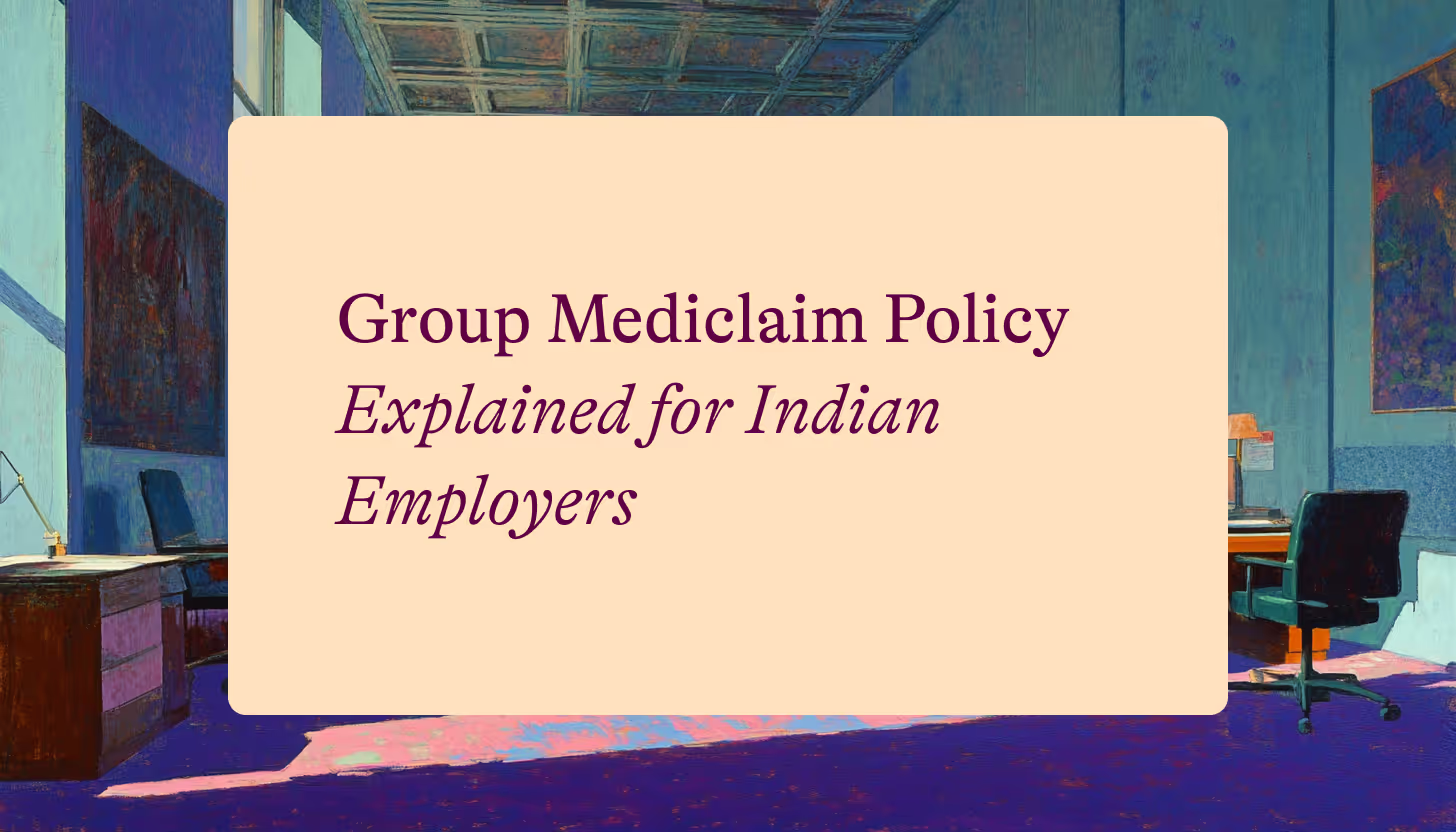Here's an interesting exercise for you. Ask your parents how much they spent on your birth. Follow it up with an insurance-related question. Question if their insurance included maternity benefits. This is how the conversation between my parents and me went.
Having been born in the early 2000s, my mother told me she spent about Rs.40,000 for my birth. Luckily, my father's company reimbursed the whole amount under their group health insurance. Brownie points for maternity benefits. Meanwhile, my parents paid only Rs.25,000 for my sibling's birth in 1994. Evidently, inflation plays a role in determining how much expectant parents pay for delivery.
Today, childbirth at private hospitals costs between Rs.80,000 for normal delivery and Rs. 70,000 - 2,00,000 for a C-section. Annual healthcare inflation is anywhere between 18-20%. And lastly, hospitals ask expectant parents to prepare to pay bills of Rs.1,50,000 to Rs.2,00,000.
This reality of increasing childbirth costs and healthcare inflation points to one thing. Employers must offer maternity benefits to their team. Especially if your team's average age is high and you cover their families.
The case for pre & post-natal expenses coverage in group health insurance
The whole period between pregnancy and birth can be divided into two key phases.
First, we have the prenatal period, the stage before childbirth. Prenatal expenses include doctor consultations, tests, ultrasound, medicine costs and more. Then we have the postnatal period, the phase after birth. Here, expenses include vaccinations and check-ups for the baby and the mother.
Per a study by Aditya Birla Capital in 2019, prenatal medical care costs roughly Rs. 49,750. Postnatal care is just as expensive, if not more, costing anywhere between Rs.50,000 to Rs. 75,000. There are many reasons why maternity benefits in group health insurance are a must.
For starters, no insurer offers stand-alone maternity covers that provide financial safety to expectant parents. Secondly, the number of high-risk pregnancies is on the rise. We can credit this to the influx of lifestyle changes coming into the picture. The risk factor also increases when people choose to have children later. Lastly, there exists a limit beyond which insurers do not cover maternity benefits. For instance, organisations opt for maternity covers of Rs.50,000 for up to 2 children. At the very least, the coverage is not comprehensive.
{{group-insurance-quote="/web-library/components"}}
Advantages of maternity cover under group health cover
Most organisations treat maternity benefits as an optional cover. There are two key reasons why. First, maternity benefits come down to the average age of the workforce. If your team is young, you can skip maternity benefits for the time being. If your team is older, having a maternity cover makes broader sense. Secondly, maternity benefits increase the premium on the group health cover. Nonetheless, a maternity benefit has the following advantages for your employees:
Complete expenses cover:
Maternity benefit offers 360-degree pre and postnatal coverage along with hospitalisation charges. This is the primary benefit. While the amount covered depends on the insurer and the policy, it’s a great practice to understand what your maternity cover offers. One can also avail cashless hospitalisation benefits if admitted to a network hospital. This makes the entire process of having a baby stress-free.
Peace of mind and security:
The crux of having an insurance benefit comes down to financial security and peace of mind when you need it the most. With a maternity benefit in place, you offer your employees reassurance that they will not have to endure any hassle while availing doctor consultations and treatments before, during and after birth.
Walk the talk
Most organisations offer group health cover and wellness benefits today. Yet, many need to step up to become more inclusive and employee-first. The first step begins with listening to your employees' needs. Policy benchmarking is the next step in identifying gaps in your own culture.
Offering inclusive policies reflects what you stand for and your organisation’s culture. Employees who feel consistently cared for are more likely to stay committed. While providing maternity benefits is a conversation-starter, it is not the entire picture. We’re yet to understand what it means to have infertility cover, surrogacy, adoption leave policies and more. Great employee engagement is not achieved overnight. It only happens when leaders try to understand their peers' concerns.
66% of our customers opted for maternity coverage under their group health policy. Of these, 12% have opted for a cover of Rs.1,00,000 and upwards for maternity. This also includes the option to cover newborns from birth. If you wish to learn more about the topic, get a copy of our women’s reproductive and sexual health report
If you’re interested in learning more about building for real inclusion, catch our conversation with Aashish Kumar Singh, CHRO of Meesho, here.
.avif)










.avif)














